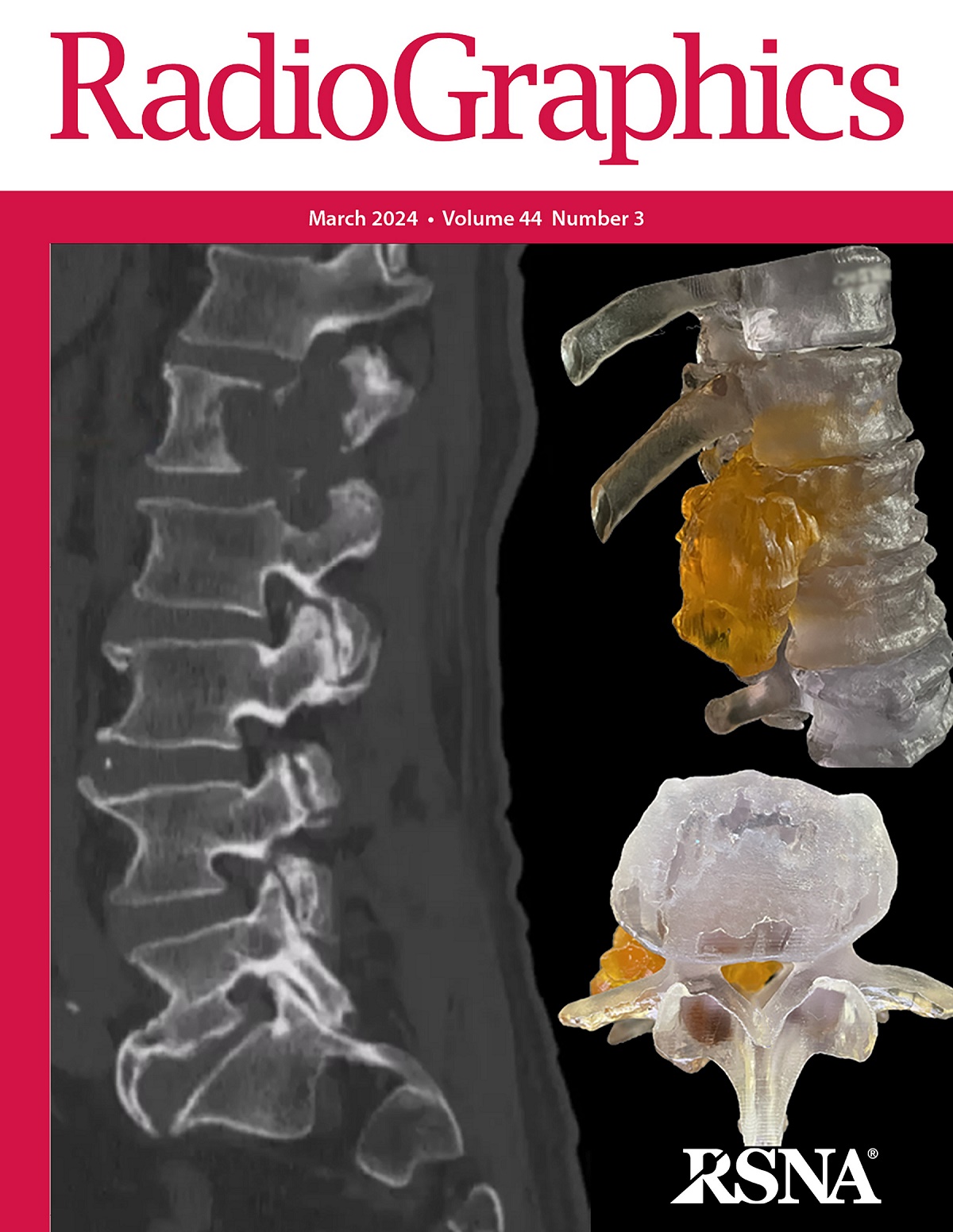求助PDF
{"title":"Essential Considerations for Radiologists in Diagnosing Hidradenitis Suppurativa.","authors":"Carolina Ávila de Almeida, Priscilla Haui, Flavia Martins Costa, Jessica Povill, Philippe Alcantara Martins, Mario Loureiro, Flavio Barbosa Luz, Gerson Ribeiro, Heron Werner, Clarissa Canella Moraes Do Carmo","doi":"10.1148/rg.240066","DOIUrl":null,"url":null,"abstract":"<p><p>Hidradenitis suppurativa, also referred to as <i>inverse acne</i>, manifests as a persistent inflammatory skin disorder characterized by lesions such as deep nodules, abscesses, sinus tracts, and fibrotic scars. These manifestations predominantly occur in skin folds and intertriginous areas, notably in the axillary, inguinal, perianal, perineal, and inframammary regions. Due to similarities with other conditions in its initial stages, accurate diagnosis of hidradenitis suppurativa is often delayed, sometimes spanning several years. Diagnosis relies on identifying specific morphologic features (such as deep, inflamed, and painful nodules; sinus tracts; and scars), considering the affected sites (skin folds and areas with apocrine glands), and recognizing the chronic nature of the condition (persistent course with periods of exacerbation and remission). There are no definitive biologic or pathologic diagnostic tests, and biopsy of the affected area is not necessary. Treatment varies based on severity and may include topical and systemic antibiotics, hormonal therapy, immunomodulators, and surgery. Due to associated pain, increased site sensitivity, secretion drainage, odor, and scarring, this condition can have a negative psychosocial impact. Imaging studies, including high-frequency US and MRI with subsequent three-dimensional reconstruction, serve as valuable tools for precise staging, monitoring disease activity, and preoperative assessment. Currently, high-frequency US stands as the preferred method, incorporating sonographic classifications, while MRI and thee-dimensional imaging represent an emerging and promising approach. Imaging helps identify the extent of sinus tracts, assess involvement dimensions in advanced disease stages, and monitor proposed treatments. <sup>©</sup>RSNA, 2024 Supplemental material and the slide presentation from the RSNA Annual Meeting are available for this article.</p>","PeriodicalId":54512,"journal":{"name":"Radiographics","volume":"44 11","pages":"e240066"},"PeriodicalIF":5.2000,"publicationDate":"2024-11-01","publicationTypes":"Journal Article","fieldsOfStudy":null,"isOpenAccess":false,"openAccessPdf":"","citationCount":"0","resultStr":null,"platform":"Semanticscholar","paperid":null,"PeriodicalName":"Radiographics","FirstCategoryId":"3","ListUrlMain":"https://doi.org/10.1148/rg.240066","RegionNum":1,"RegionCategory":"医学","ArticlePicture":[],"TitleCN":null,"AbstractTextCN":null,"PMCID":null,"EPubDate":"","PubModel":"","JCR":"Q1","JCRName":"RADIOLOGY, NUCLEAR MEDICINE & MEDICAL IMAGING","Score":null,"Total":0}
引用次数: 0
引用
批量引用
Abstract
Hidradenitis suppurativa, also referred to as inverse acne , manifests as a persistent inflammatory skin disorder characterized by lesions such as deep nodules, abscesses, sinus tracts, and fibrotic scars. These manifestations predominantly occur in skin folds and intertriginous areas, notably in the axillary, inguinal, perianal, perineal, and inframammary regions. Due to similarities with other conditions in its initial stages, accurate diagnosis of hidradenitis suppurativa is often delayed, sometimes spanning several years. Diagnosis relies on identifying specific morphologic features (such as deep, inflamed, and painful nodules; sinus tracts; and scars), considering the affected sites (skin folds and areas with apocrine glands), and recognizing the chronic nature of the condition (persistent course with periods of exacerbation and remission). There are no definitive biologic or pathologic diagnostic tests, and biopsy of the affected area is not necessary. Treatment varies based on severity and may include topical and systemic antibiotics, hormonal therapy, immunomodulators, and surgery. Due to associated pain, increased site sensitivity, secretion drainage, odor, and scarring, this condition can have a negative psychosocial impact. Imaging studies, including high-frequency US and MRI with subsequent three-dimensional reconstruction, serve as valuable tools for precise staging, monitoring disease activity, and preoperative assessment. Currently, high-frequency US stands as the preferred method, incorporating sonographic classifications, while MRI and thee-dimensional imaging represent an emerging and promising approach. Imaging helps identify the extent of sinus tracts, assess involvement dimensions in advanced disease stages, and monitor proposed treatments. © RSNA, 2024 Supplemental material and the slide presentation from the RSNA Annual Meeting are available for this article.


